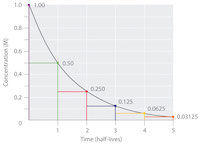 We think of learning relative to a body of knowledge; we talk about learning a foreign language, data science, corporate finance, or carpentry. Academic degrees are built around demonstrating mastery of a body of knowledge.Professions are defined and certified in terms of mastering a specified body of knowledge.
We think of learning relative to a body of knowledge; we talk about learning a foreign language, data science, corporate finance, or carpentry. Academic degrees are built around demonstrating mastery of a body of knowledge.Professions are defined and certified in terms of mastering a specified body of knowledge.
I have two problems with this thinking from the perspective of learning. Who specifies what constitutes the relevant body of knowledge? And, how do you handle the problem of updating the body of knowledge? The way we conventionally think about those two questions seriously interferes with our ability to learn in the environment we face.
What is it about the environment that triggers my worries? The pace of change. We’re familiar with Moore’s Law, for example. There is the exponential growth in multiple measures of data and information. There is the exponential growth in scientific publications.
The simplest organizing idea here is the notion of the half-life of knowledge. We know that this half-life is shrinking in all sorts of fields.
What happens when that half-life is shorter than the time it takes to update a relevant body of knowledge and fold the new knowledge into certification processes and school curricula? Professional associations worry about this. Schools doing curriculum design worry as well. Organizations that find schools and professional associations moving too slowly worry and respond by creating corporate universities.
What does it all mean from the perspective of an individual trying to cope? What do you do if you understand that you can’t simply turn the problem over to the experts?
The standard responses of going back to school or trusting in the continuing education requirements of your chosen field are insufficient. All of those responses are rooted in the assumption that learning is simply about mastering a body of knowledge.
One of Alvin Toffler’s oft-quoted observations is that “the illiterate of the 21st century will not be those who cannot read and write, but those who cannot learn, unlearn, and relearn.†He had a handle on this problem. We need to master another layer of skills, to see the body of knowledge as something dynamic and evolving.
From that vantage point we take on responsibility for actively updating and maintaining the bodies of knowledge that concern us. Whatever our central interests, we have to also acquire basic competence in how learning works and in how knowledge is created. We need to become our own curriculum designers and our own research directors.
3 thoughts on “Learning, bodies of knowledge, and half-lives”
Comments are closed.